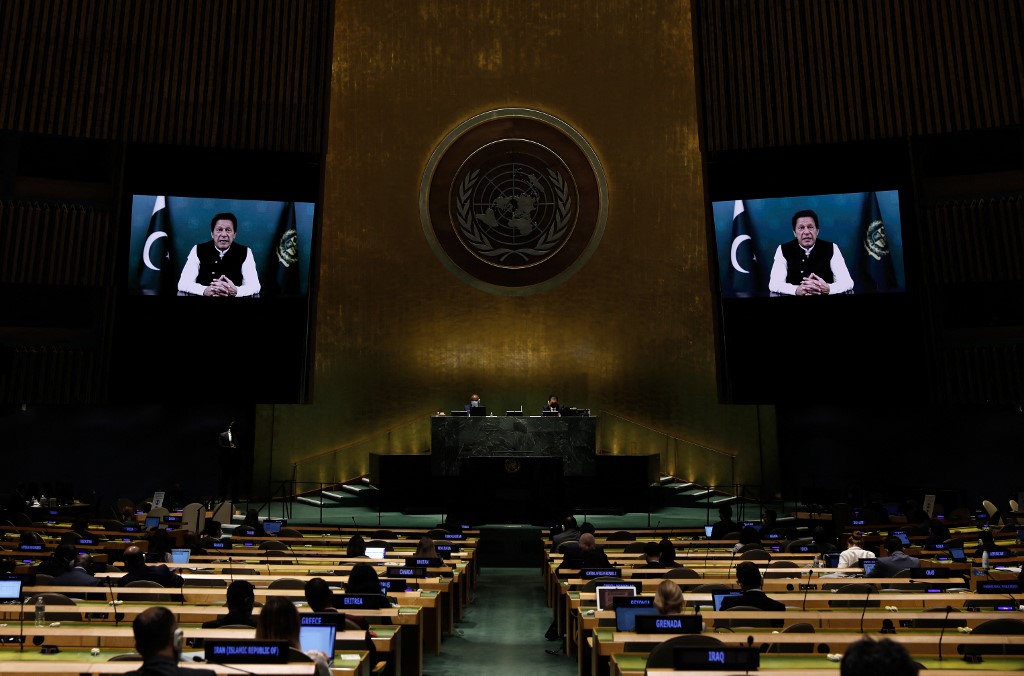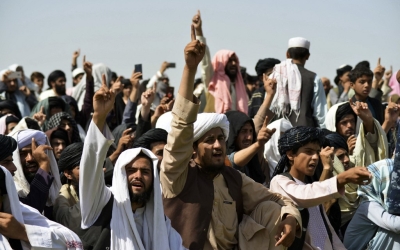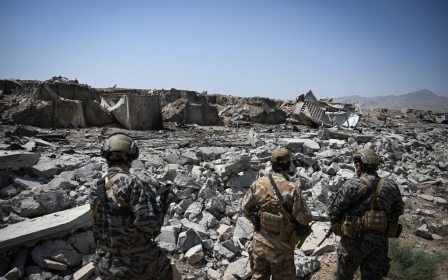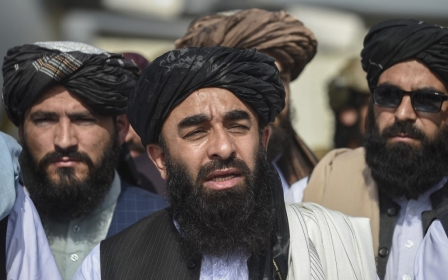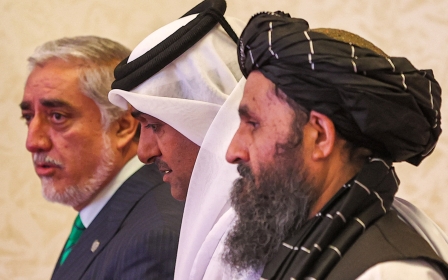Afghanistan crisis: What to expect from OIC summit in Pakistan
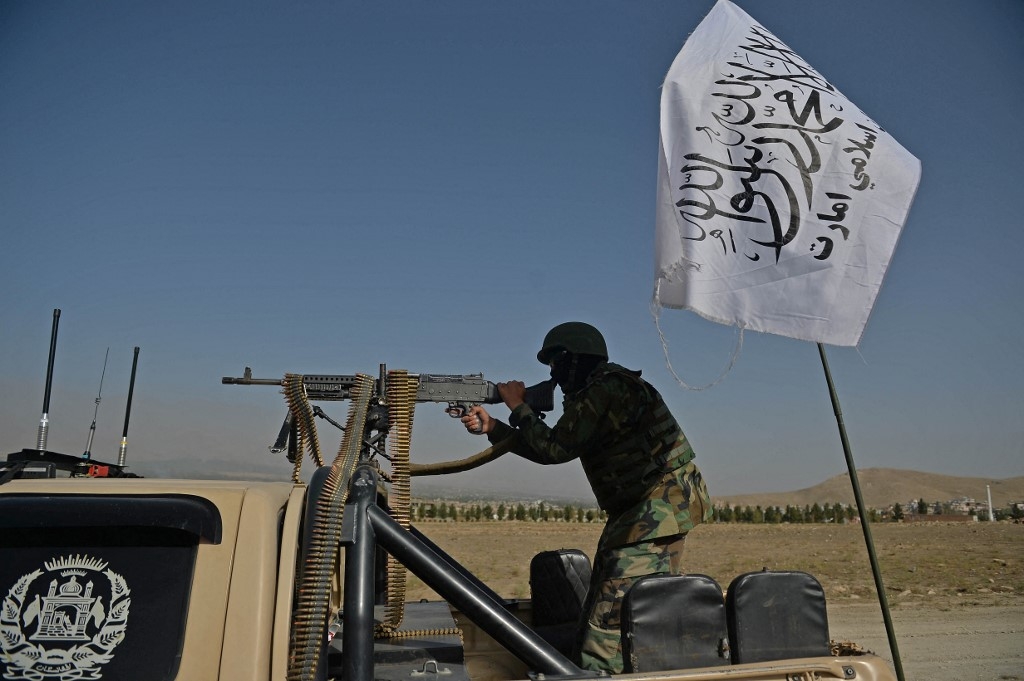
On Sunday, Pakistan will host a special session of the Organisation of Islamic Cooperation (OIC) Council of Foreign Ministers on the situation in Afghanistan, four decades after it hosted a similar meeting amid the backdrop of the Soviet-US Cold War.
This will be the biggest international gathering on Afghanistan since the Taliban returned to power; it will focus on how to resolve the grim humanitarian situation, stabilise the economy and navigate Afghanistan's relations with the world. OIC secretary-general Hissein Brahim Taha said he hoped the meeting would accelerate relief efforts for the Afghan populace.
For the Taliban, the upcoming session provides two major benefits: the prospect of more humanitarian assistance, and engagement with countries to garner recognition
Delegations from the US, the UK, France, Russia, China and the European Union will also attend, as will the Taliban’s acting minister of foreign affairs, Amir Khan Muttaqi.
Since the Taliban's takeover of Kabul in August, the already bad situation in Afghanistan has deteriorated further. As international donors cut aid, the UN said Afghanistan was reeling from an "unprecedented fiscal shock". Washington has also frozen more than $9bn of Afghanistan's hard currency assets, and the International Monetary Fund has cut off its access to funding.
At the same time, Covid-19 continues to spread, droughts have caused harvests to fail, and the economy has seized up. An estimated 23 million people, more than half of the population, are facing severe levels of hunger, with nearly nine million at risk of famine. "This winter, millions of Afghans will have to choose between starvation or migration," according to the World Food Programme.
Pakistani assistance
Since 2001, Pakistan's position on Afghanistan has been clear. Islamabad has always advocated for a non-military solution and pushed for a negotiated settlement that includes the Taliban as a key stakeholder. As Afghanistan's neighbour, Pakistan faces a direct risk of spillover conflict.
Pakistani Prime Minister Imran Khan recently pledged five billion rupees ($28m) in assistance to Afghanistan. Islamabad has also provided dozens of planeloads and truckloads of food and medical assistance, while expediting the evacuation of tens of thousands of people. In addition, Pakistan, which hosts hundreds of thousands of Afghan refugees, has removed visa processing fees for Afghan applicants until the end of the year.
On Wednesday, during a meeting of the Apex Committee on Afghanistan, Khan said it would be a mistake for the world to isolate Afghanistan. By hosting the OIC summit, Pakistan was fulfilling its responsibility to warn the world community that inaction on Afghanistan would fuel a humanitarian catastrophe, Pakistani Foreign Minister Shah Mahmood Qureshi said.
Although countries in the region, the EU and international financial institutions have made contributions to help lessen the humanitarian crisis, much more needs to be done. Tariq Ali Bakheet, the OIC's assistant secretary-general, said Sunday's summit would help to crystallise a strategy.
Engaging with the world
For the Taliban, the summit provides two major benefits: the prospect of more humanitarian assistance, and engagement with countries to garner recognition. Taliban spokesperson Zabiullah Mujahid has called on members of the OIC to officially recognise the government in Kabul, and the Taliban has also expressed a desire to engage with the US. Sunday's meeting provides an ideal opportunity.
Pakistan can use the summit to highlight its efforts towards promoting peace in Afghanistan, as Islamabad works towards recalibrating itself as an important voice in world affairs.
Qatar has been at the forefront of peace efforts in Afghanistan, which has bolstered its international image, while, by calling this meeting amid ongoing Gulf rivalries, Saudi Arabia, where the OIC is headquartered, reaffirmed its own centrality in regional affairs.
The summit also provides an opportunity for all countries to unite against the threat posed by Islamic State - Khorasan Province, which has carried out a number of attacks in Afghanistan and could also target neighbouring countries. Poverty is reportedly pushing Afghans to join the terrorist group, as they are incentivised with cash aid.
This extraordinary OIC meeting is timely, giving members a chance to demonstrate that the organisation is not a mere echo chamber but retains the ability to provide a united front in the Muslim world. While the outcome is hard to predict, the summit will hopefully produce a concrete roadmap to alleviate the suffering of the Afghan people.
The views expressed in this article belong to the authors and do not necessarily reflect the editorial policy of Middle East Eye.
Middle East Eye propose une couverture et une analyse indépendantes et incomparables du Moyen-Orient, de l’Afrique du Nord et d’autres régions du monde. Pour en savoir plus sur la reprise de ce contenu et les frais qui s’appliquent, veuillez remplir ce formulaire [en anglais]. Pour en savoir plus sur MEE, cliquez ici [en anglais].



